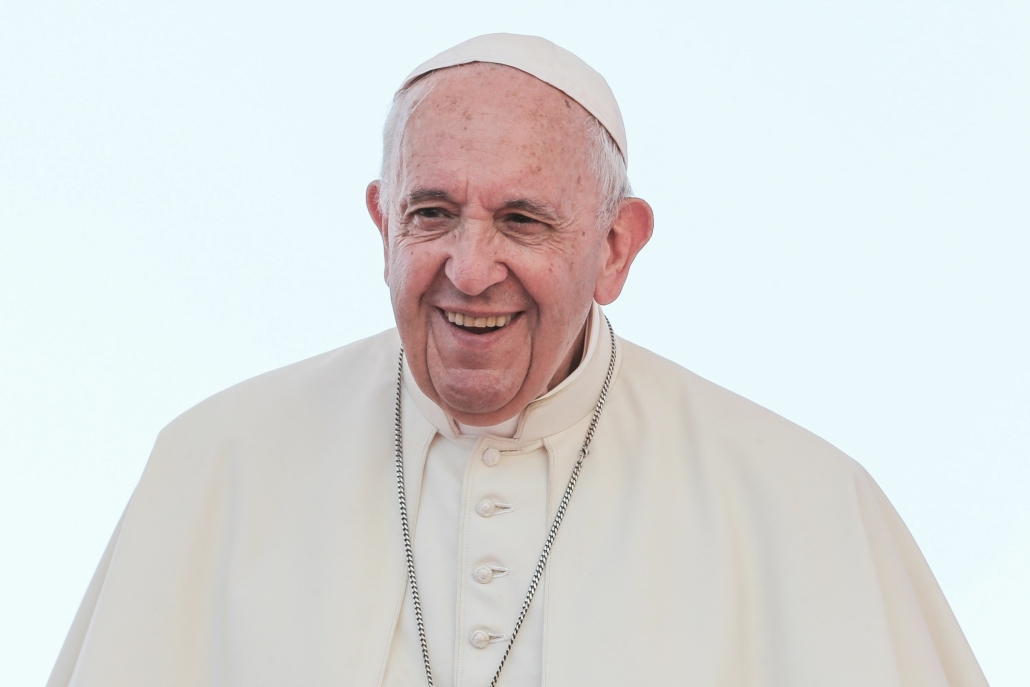Dear Brothers and Sisters, Good morning!
In recent Sundays the liturgy has emphasized what it means to assume an attitude of vigilance and what preparing the way of the Lord entails, concretely. On this Third Sunday of Advent, called the “Sunday of joy”, the liturgy invites us to welcome the spirit with which all this happens, that is, precisely, joy. Saint Paul invites us to prepare for the coming of the Lord, by assuming three attitudes. Listen carefully: three attitudes. First, constant joy; second, steadfast prayer; third, continuous thanksgiving. Constant joy, steadfast prayer and continuous thanksgiving.
The first attitude, constant joy: “Rejoice always” (1 Thess 5:16), Saint Paul says. This means always being joyful, even when things do not go according to our wishes; but there is that profound joy, which is peace: that too is joy; it is within. And peace is a joy “at the ground level”, but it is a joy. Distress, difficulties and suffering pass through each person’s life, we are all familiar with them; and so often the reality that surrounds us seems to be inhospitable and barren, similar to the desert in which the voice of John the Baptist resonated, as today’s Gospel passage recalls (cf. Jn 1:23). But the very words of the Baptist reveal that our joy rests on a certainty, that this desert is inhabited: “among you” — he says — “stands one whom you do not know” (v. 26). It refers to Jesus, the Father’s envoy who comes, as Isaiah stresses, “to bring good tidings to the afflicted; he has sent me to bind up the brokenhearted, proclaim liberty to the captives, and the opening of the prison to those who are bound; to proclaim the year of the Lord’s favor” (61:1-2). These words, which Jesus will speak in his discourse at the synagogue of Nazareth (cf. Lk 4:16-19), clarify that his mission in the world consists in the liberation from sin and from the personal and social slavery that it produces. He has come to the earth to restore to mankind the dignity and freedom of the Children of God — which only he can communicate — and thereby to give joy.
The joy which characterizes the awaiting of the Messiah is based on steadfast prayer: this is the second attitude. Saint Paul says: “pray constantly” (1 Thess 5:17). By praying we can enter a stable relationship with God, who is the source of true joy. A Christian’s joy is not bought; it cannot be bought. It comes from faith and from the encounter with Jesus Christ, the reason for our happiness. And when we are rooted in Christ, the closer we are to Jesus, the more we find inner peace, even among everyday contradictions. For this reason a Christian, having encountered Jesus, cannot be a prophet of misfortune, but a witness and herald of joy. A joy to share with others; an infectious joy that renders the journey of life less toilsome.
The third attitude Paul points to is continuous thanksgiving, which is grateful love towards God. Indeed, he is very generous to us, and we are invited to always recognize his beneficence, his merciful love, his patience and goodness, thus living in unceasing thanksgiving.
Joy, prayer and gratitude are three attitudes that prepare us to experience Christmas in an authentic way. Joy, prayer and gratitude. Everyone together, let us say: joy, prayer and gratitude. [The people repeat.] Once again! [The people repeat.] In this last period of the Season of Advent, let us entrust ourselves to the maternal intercession of the Virgin Mary. She is a “cause of our joy”, not only because she begot Jesus, but because she keeps directing us to him




